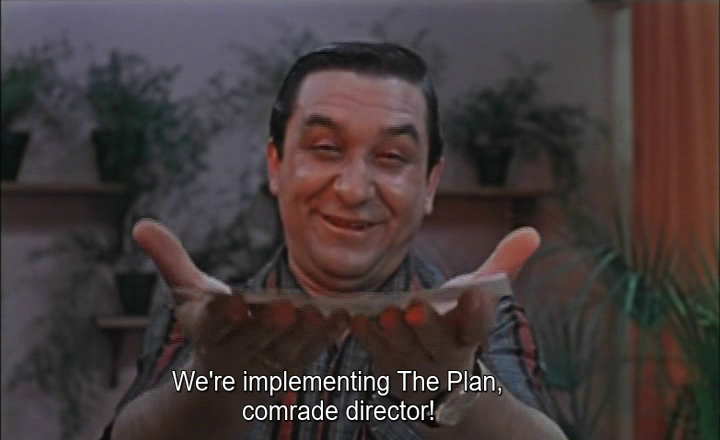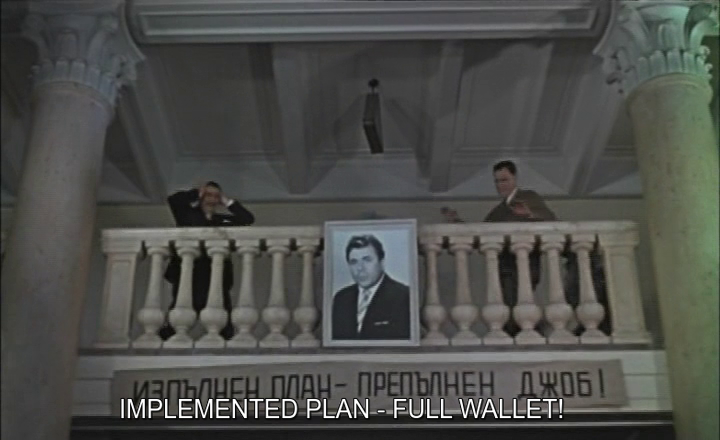


Peau d'âne seems like something i should love but it's really just cinderella with incest?? also i feel like michel legrand was just coasting here



participating in this film was a life-changing experience for the main character (Chad / James Fox).A gangster movie is gradually absorbed by a hippie pastoralPeter Wollen on dandyism, decadence and death in PerformancePerformance also has the feel of a home movie, albeit a home movie produced by Warner Brothers
(September 1995 issue of S&S)
→ https://www2.bfi.org.uk/news-opinion/si ... ter-wollen

After finishing work on Performance (released 1970, but shot in 1968), Fox suspended his acting career.
In a 2008 interview, he said: "It was just part of my journey. I think my journey was to spend a while away from acting."
He became an evangelical Christian, working with the Navigators (a worldwide Christian para-church organization based in Colorado Springs) and devoting himself to the ministry.
der kulterer wrote: ↑Tue Aug 06, 2024 9:07 pmin 1969, i was modest.One of the champers here is too modest perhaps to admit to subtitling a great Czech movie from this year
in 1970, i am going to promote my subbing efforts shamelessly.
Radúz and Mahulena (Petr Weigl)
→ https://www.imdb.com/title/tt0350027/
i see there is an upgrade available on kg and i am not sure if it uses my subs or if there are some other (official) but anyway...
i deeply admire Jan Tříska (the actor playing Raduz).
he was an excellent theater actor.
it disqualified him from being cast in the new-wave films (preference of either the non-actors or actors without big stage gestures & pathos).
as Raduz he goes full pathetic on screen and it's excellent.







yw, rischka! i am glad you liked it


Hopefully it will find it's way online soon, it was only aired once in 1970 before being banned and was finally able to be screened after Strauss copyright expired.
Russell's composer biopics were usually labours of love. This was the opposite: he regarded Strauss's music as "bombastic, sham and hollow", and despised the composer for claiming to be apolitical while cosying up to the Nazi regime. The film depicts Strauss in a variety of grotesquely caricatured situations: attacked by nuns after adopting Nietzsche's philosophy, he fights duels with jealous husbands, literally batters his critics into submission with his music and glorifies the women in his life and fantasies.
Later, his association with Hitler leads to a graphically-depicted willingness to turn a blind eye to Nazi excesses, responding to SS thugs carving a Star of David in an elderly Jewish man's chest by urging his orchestra to play louder, drowning out the screams. Unexpectedly, Strauss is credited as co-writer, which was Russell's way of indicating that every word he uttered on screen was sourced directly from real-life statements.






This film had one of the most scandalous and at the same time mythological destinies in the history of Bulgarian cinema. It was filmed in 1967 but not released until 1970 when it was shown at a few small cinema halls in an edition that had been expurgated by the communist authorities. Whale satirizes the extant defects in the economic and social structure of the state in those years. Moreover, the film unambiguously specifies the exact carriers of the negative effects. The target is the bureaucratic pathos at the different ruling levels. The pathos by means of which various data and information are manipulated in the name of non-existing achievements.
btw. notice ↑↑ that the phrase "I overthrow imperialism" was a sensitive topic (with the possible multiple readings) in the Soviet satellite state!First Letter
Committee for Culture & Art
Cinematography division
Letter No. 1365
11.10.1967
VERY URGENT!
To the director of the film studio.
With reference to the studio's fulfillment of the production plan and the recently completed film "Whale".
In the unanimous opinion of the Committee of Culture and Art, the director is assigned the following outstanding corrections without which the film CANNOT (underlined), be allowed onto the screen.
1. The scene with the captain's mother is to be shortened.
2. All bleating and mooing is to be removed, as it is highly crude and naturalistic.
3. Cut the line about Khan Asparukh.
4. Shorten the vulgar scene in the head office.
5. Shorten the tasteless showing of female road (flesh) in the phone box.
6. Cut the lines about Elisaveta, Gagarin. And every hint of comparison between socialism and capitalism.
7. Shorten the parody singing of the national anthem.
8. Cut the line by Dimitur Panov "I overthrow imperialism".
9. The female Komsomol secretary's role is to be reduced as much as possible. That's a pity.
10. The final speech by Parushev is to be wholly revised.
The director of production should immediately start working on the corrections.
Signed: Head of cinematography
[confidential]


Second Letter
VERY URGENT!
To the director of the film studio.
Corrections to be made on the film "Whale":
1. Shorten Parushev's speech on TV played by Kaloyanchev. Applies only for frames in which Kaloyanchev's head is shown on TV.
2. Shorten Kalchev's speech in front of the portrait of Parushev.
Head of the Division,
Karakashev.
December 1967, Sofia
Shortly after Whale was filmed in 1967, the eastern Europe was shaken by the doings around the Prague Spring. So it was a very delicate moment. Of course in the direction of the Bulgarian Communist Party, which forcibly took the monocracy in the country, were aware of the bitting satire of the communist economic model represented in the film. Moreover, the authorities noticed even an allusion between the character of Parushev (Kaloyanchev) and the leader of the Bulgarian communists and President of the Republic of that time Todor Zhivkov. It was also perceived some relation between the character of Kalcho Kalchev (Panov) and Stanko Todorov another communist leader. In the film Kalchev is the general executive of the local enterprise. But before that it became clear that he was simply a hatter. As a matter of fact Stanko Todorov was a tailor in his youth.
The director Vasilev and the cinematographer Emil Vagenshtain bravely struggled with the censoring. The reel stayed more than a two years in the basement stores. At that time the big scandal with some local communist leader burst out in the country. He reported a great crop of wheat for what he was awarded. Subsequently, it turned out that the crop was below the average.
The appearance of Radoy Ralin in an episode as an ichthyologist also added oil to the flames. Being famous writer satirist and a poet he was also a well known dissident during the communist regime.
Finally the film was released but at first in only two cinema halls in the city of Plovdiv. Even without any advertisement the tickets are sold out. Afterwards Whale was shown in the small Levski cinema in the capital of Sofia again with no preliminary announcement. There were cues and frames missing even the whole episodes were cut off.
The non-censored edition was released on DVD in the 2000s.

